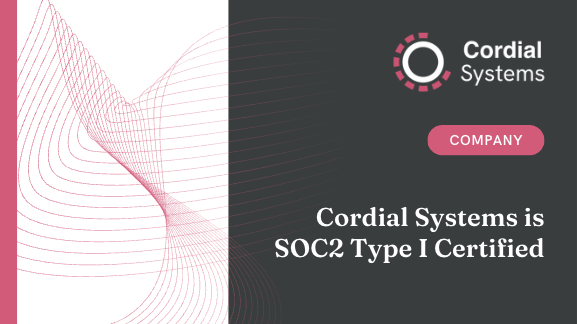
By Sebastian Higgs, Cordial Systems Co-Founder and COO
I recently had the chance to join an excellent group of fintech, AI, and Web3 leaders at Istanbul Fintech Week to discuss mass adoption for digital assets. While much of the global conversation tends to focus on the US, EU, or major Asian markets, Turkey’s position in this space deserves far more attention than it often receives.

If you’re following adoption data, Turkey consistently shows up as one of the most active crypto markets globally. In fact, at various points in recent years, Turkish lira trading volume has rivaled that of the euro. The BTC-TRY pair, in particular, has seen significant growth. It’s not hard to see why: with persistent inflation, lira devaluation, and long-standing macroeconomic pressures, crypto has become an accessible on-ramp for store-of-value and cross-border settlement for many Turkish citizens. Today, estimates suggest more than half the population holds some form of crypto exposure.
But what’s happening on the institutional side is equally interesting, and that’s where Turkey is quietly becoming one of the more sophisticated regulatory frameworks to watch.
A Regulatory Framework Actively Taking Shape
The Capital Markets Board (CMB) holds the primary authority for licensing crypto asset service providers in Turkey. While the high-level regulatory guidance was introduced some time ago, more recent communications have focused heavily on operating standards, capital requirements, and aligning with broader international standards like MiCA.
For institutions seeking authorization, this isn’t just a matter of filling out paperwork. The CMB has made it clear that crypto custody is to be provided by banks and those with bank-grade infrastructure which the CMB approves of, including integration into Turkey’s local Central Securities Depository (CSD). In practice, that means custody operations can only be provided by banks or authorized financial institutions, and these institutions face a tight compliance timeline — with full conformity required by June 30, 2025.
Custody Infrastructure: Not Just Any Stack Will Work
Where Turkey’s requirements get especially interesting - and highly prescriptive - is around custody infrastructure itself. The technical architecture must be fully auditable, locally hosted, and compliant with strict data residency mandates. This means running the full custody stack within Turkey’s borders, with no dependency on foreign service providers or third-party platforms operating outside of the jurisdiction.
For many providers accustomed to SaaS or cloud-based custody models, this becomes a non-starter. It’s also where Cordial Systems is particularly well-positioned: our self-hosted MPC infrastructure offers institutions 100% operational control over key material, policy management, and deployment architecture - all within local IT environments fully compliant with data residency rules. It even works with their favourite Hardware Security Module (HSM) in an offline environment.
And importantly, this isn’t just an exercise in data localization. Turkey’s Scientific and Technological Research Council (TÜBİTAK) plays an active role in defining the technical frameworks that banks and financial institutions must comply with, including vendor selection and overall system design. This level of detailed technical governance isn’t something you find in most global jurisdictions, and it's one of the reasons the Turkish market presents both significant challenges and unique opportunities for institutional crypto adoption.
The Banks Aren’t Coming — They’re Already Here
Perhaps the most important takeaway from Istanbul Fintech Week is that Turkey is no longer in the “coming soon” phase. Banks like Garanti BBVA and BankPozitif have publicly announced plans to launch crypto services, with Garanti estimating potential access for as many as 27 million customers. Roundtables at the conference weren’t focused on hypothetical roadmaps — they were discussing real deployments, infrastructure decisions, and active oversight from both regulators and financial market participants.
This isn't the common industry headline of “the banks are coming.” In Turkey, they are already here. And as the June 2025 deadline approaches, the Turkish model may end up becoming a valuable case study for how digital asset adoption, regulatory clarity, and local operational control can co-exist.
Cordial Systems is actively working with institutions navigating regional regulatory frameworks for digital asset custody. To learn more about how self-hosted MPC architecture enables compliance without sacrificing operational sovereignty, contact us.





